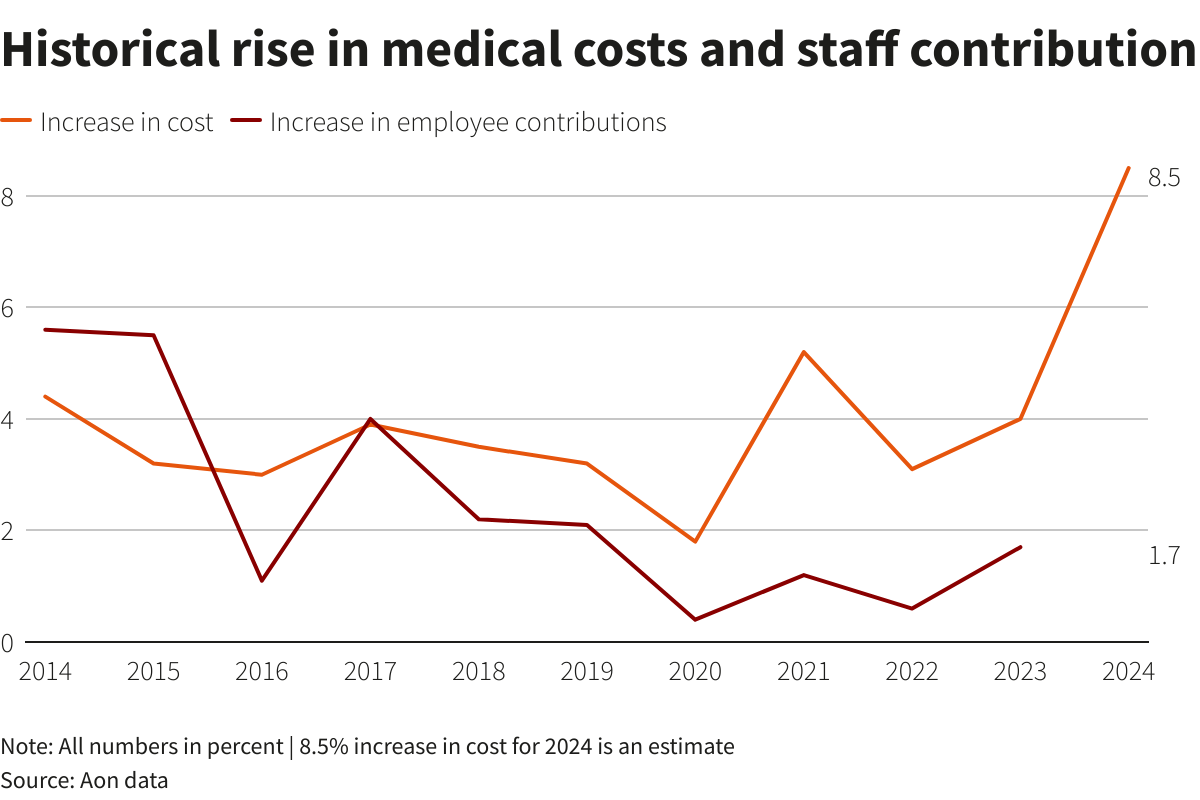DOJ Antitrust Suit Could Cripple Google Search, Says Sundar Pichai

Table of Contents
The DOJ's Core Allegations Against Google Search
The DOJ's antitrust lawsuit against Google centers on allegations of anti-competitive practices that have allowed the company to maintain an overwhelmingly dominant position in the search engine market. The core of the case rests on claims that Google has systematically stifled competition through a series of exclusionary tactics. These actions, the DOJ argues, violate antitrust laws designed to promote fair competition and protect consumers. Key accusations include:
-
Maintaining a Monopoly Through Exclusionary Contracts: The DOJ alleges Google entered into agreements with mobile device manufacturers and network operators, effectively making Google Search the default search engine. This arrangement, they argue, locked out competitors and prevented consumers from easily choosing alternatives.
-
Self-Preferencing: A significant aspect of the DOJ's case involves Google's alleged practice of prioritizing its own products and services within its search results. This "self-preferencing," the DOJ contends, gives Google an unfair advantage over rivals and artificially boosts the visibility of its own offerings (like Google Maps, Google Shopping).
-
Suppressing Competition from Rival Search Engines: The lawsuit accuses Google of actively working to suppress competition from rival search engines through various tactics, limiting their visibility and access to distribution channels.
-
Anti-competitive Practices in Mobile Search: The DOJ highlights Google's dominance in mobile search, arguing that similar anti-competitive practices have cemented its position in this crucial sector.
Sundar Pichai's Concerns and Google's Response
Sundar Pichai has publicly expressed concerns that the DOJ’s Google antitrust lawsuit, if successful, could significantly alter the functionality and accessibility of Google Search. While Google has not explicitly admitted wrongdoing, its official response focuses on arguing that its practices benefit consumers through integration and innovation. Google maintains that its services are valuable to users precisely because of their interconnected nature and that the DOJ's proposed remedies would harm consumers. However, the strength of Google's arguments remains a subject of debate among legal experts. Counter-arguments from Google likely will focus on the value proposition of its integrated services, arguing that the current structure allows for a superior user experience.
Potential Consequences of a DOJ Victory
A successful DOJ case against Google could dramatically reshape the search engine market. Several potential scenarios exist, each with significant implications:
-
Google Search's Market Share: A court order might force Google to divest certain assets or significantly alter its business practices, potentially leading to a substantial reduction in its market share.
-
The Overall Search Engine Market Landscape: Reduced Google dominance could create space for alternative search engines to gain traction, fostering increased competition and potentially leading to innovation in search technology and features.
-
Innovation in Search Technology: The outcome of the lawsuit could either stifle or accelerate innovation depending on the specific remedies imposed. A more fragmented market might foster innovation, while extensive regulation could have the opposite effect.
-
User Experience and Choice: Consumers might experience a shift in their search experience, potentially encountering different default search engines or facing less integrated services. Increased competition could however lead to more user choice and potentially better search results. Structural remedies, such as a forced divestiture of specific Google assets, are a distinct possibility.
Impact on Consumers and the Broader Tech Industry
The ramifications of this DOJ antitrust suit extend far beyond Google itself. For consumers, changes in search results, default search engines, and the availability of integrated services could be significant. The broader tech industry will also feel the ripple effects. This legal battle sets a precedent for how regulators approach the dominance of large tech companies. Furthermore, the outcome could influence online privacy and data security regulations, and may shape future discussions around antitrust policy.
Alternative Search Engines and Market Competition
A weakened Google could provide a significant opportunity for alternative search engines like Bing, DuckDuckGo, and others to gain market share. This increased competition could spur innovation, leading to the development of new features and approaches to search technology. The current landscape could undergo a major transformation, with consumers potentially benefiting from a wider range of options and potentially enhanced search experiences.
The Future of Google Search After the DOJ Antitrust Suit
The DOJ antitrust lawsuit against Google holds immense significance for the future of online search. Sundar Pichai's concerns underscore the potential for disruptive change. The outcome will significantly shape the competitive landscape, influencing not only Google's dominance but also the innovation and user experience of search engines worldwide. The potential for structural remedies, such as forced asset divestitures, hangs heavy over the future of Google Search. Stay updated on the developments of this crucial DOJ Antitrust Suit and its effects on the future of Google Search and the broader tech industry.

Featured Posts
-
 Farages Whats App Leaks Trigger Reform Party Civil War
May 03, 2025
Farages Whats App Leaks Trigger Reform Party Civil War
May 03, 2025 -
 Rust A Review Of Alec Baldwins Performance And The Films Impact
May 03, 2025
Rust A Review Of Alec Baldwins Performance And The Films Impact
May 03, 2025 -
 The High Cost Of Mental Healthcare Why Claims Are So Low And How To Improve Access
May 03, 2025
The High Cost Of Mental Healthcare Why Claims Are So Low And How To Improve Access
May 03, 2025 -
 Netanyahou Critique Vivement La Position D Emmanuel Macron Sur L Etat Palestinien
May 03, 2025
Netanyahou Critique Vivement La Position D Emmanuel Macron Sur L Etat Palestinien
May 03, 2025 -
 Reform Uk Nigel Farages Influence And Future Prospects
May 03, 2025
Reform Uk Nigel Farages Influence And Future Prospects
May 03, 2025
